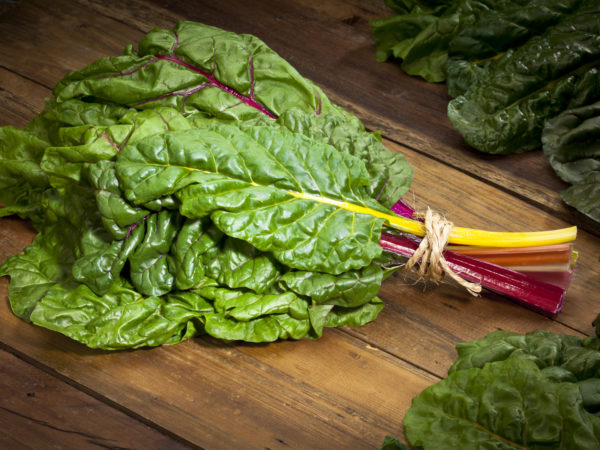How Dangerous Are Oxalates?
Can too much oxalic acid cause health problems? Are there any people who should avoid foods containing it?
Andrew Weil, M.D. | May 21, 2018

Oxalic acid (or oxalate) is the component of spinach, chard, beet greens, and rhubarb that accounts for their sharp taste. It also occurs in some other vegetables as well as in cocoa powder, peanuts, sweet potatoes, bran flakes, potato chips and French fries. Concentrations of oxalic acid are low in most plants and plant-based foods. Small amounts are produced in the body.
Few health problems are linked to oxalic acid, although it can cause formation of kidney stones in people with inflammatory bowel disease, primarily because they are unable to regulate the amount they absorb. (Most kidney stones are composed of calcium oxalate.) For this reason susceptible individuals are advised to follow a low-oxalate diet. (If you‘ve had a kidney stone and want to avoid another one, you should have a blood test for oxalate; if your level is low, you don’t need to bother with a low-oxalate diet.)
In women, some cases of vulvodynia may be associated with oxalic acid. This is a painful condition that affects the vulva, the area around the opening of the vagina; symptoms are burning, itching, soreness, stinging, or throbbing sensations. Several studies have failed to find a connection between vulvodynia and oxalic acid, although one evaluation of 59 affected women concluded that urinary excretion of oxalates may aggravate this disorder.
I’ve read claims that oxalates are linked to development of autism, but I haven’t seen any scientific confirmation of an association.
Elsewhere on this site I’ve addressed the issue of oxalic acid’s interference with the absorption of calcium from spinach and other green vegetables. It does not affect calcium absorption from dairy products. If you’re concerned about kidney stones, a calcium-rich diet will reduce the amount of oxalate your body absorbs, lessening the chance of stone formation – two to three servings daily of calcium-rich foods should do the trick. And you need not worry about using stock in which chard or other green vegetables containing oxalates are cooked.
Andrew Weil, M.D.
Source:
Robert P. Heaney and C.M. Weaver, “Oxalate: effect on calcium absorbability.” American Journal of Clinical Nutrition, October 1989.












